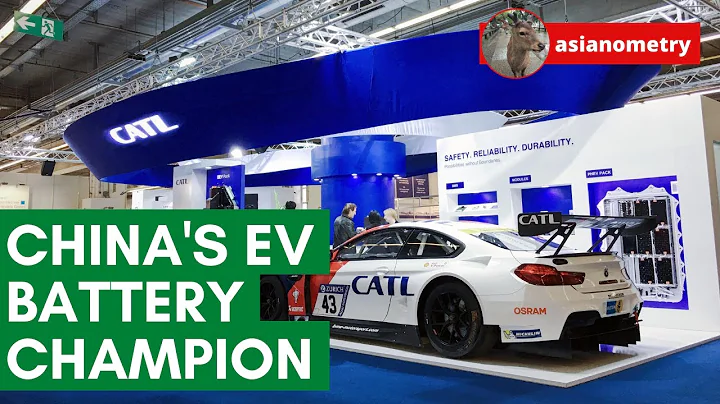,100 battery-related Japanese companies have formed the "Battery Supply Chain Council" . Their goal is to regain the battery initiative from Chinese companies. For Japanese companies, this is a battle of dignity. Not long ago, the battery supply chain agreement proposed that "China cannot be allowed to propose lithium standards that are beneficial to the country!" This means that they can no longer sit still and need to take some actions.

The glory is gone, and Japanese companies have lost their dominance over lithium batteries
Going back to 30 years ago, Japan is definitely the global leader in lithium batteries. In the 1970s, Japanese companies became the first “crab-eaters” in the research and development of lithium batteries. In the 1980s, under the leadership of Akira Yoshino, known as the "Father of Lithium Batteries," Japanese companies made rapid progress in lithium battery technology, and there was a faint tendency to surpass the United States and become the world's hegemon.
In 1991, Sony took the lead in releasing the world's first commercial lithium-ion battery and applied it to its own cameras. Subsequently, Toshiba and Panasonic followed up on lithium battery technology, and for a time Japan became the world's largest lithium battery producer. Even the United States imported a large number of batteries from Japanese companies. The situation has developed to this point, and Japanese companies have already made a "bad start" in the field of lithium batteries, but the subsequent development of the matter has exceeded everyone's expectations.

. Companies such as Sony and Toshiba have given up on the development of lithium battery technology and invested in hydrogen energy. However, they all ended in failure. Fortunately, Panasonic persisted and was able to maintain the "sole seedling" of Japanese companies' lithium battery technology. ".

Chinese companies broke foreign monopoly
China's development of lithium battery technology started very late. It was only in 1999 that lithium batteries were commercialized in China. At that time, a domestic company called "Xingheng Battery Company" started the commercialization of lithium batteries in China. Also in 1999, Zeng Yuqun established "New Energy Technology" (ATL) in Hong Kong and once captured a large market from Japanese companies. But then, in order to maintain its position in the lithium battery field, Japanese companies used some "capital means" to fully acquire ATL.
But Zeng Yuqun did not give up. In 2011, Zeng Yuqun, who had been ostracized by Japanese capital, decided to start over. He led a group of ATL technical backbones to create the famous " CATL ". This is how the domestic lithium battery industry began There is a trend of "turning against the wind".

On the other hand, BYD independently developed lithium batteries in 2000 and slowly gained a foothold under the obstruction of Japanese and Korean companies. In 2005, BYD developed the first lithium iron phosphate battery , officially establishing its position as the "biggest brother" of domestic power lithium batteries .
Many people may lament that the domestic lithium battery industry has suddenly taken the lead in the world, but in fact, the foreshadowing was laid 20 years ago. Every lead is hard-won, and nothing can be obtained easily. success.
Japanese companies: To limit the right to speak of Chinese companies
The International Conference on Lithium Standards (ISO) approved China's proposal to "set up a professional committee for new standards" proposed by China in 2020. Subsequently, the committee's officers were appointed by China This means that China has taken the initiative to formulate standards for . This has made Japanese companies anxious - you must know that it was the right of Japanese companies to set lithium battery standards in the past. Seeing that Chinese companies have surpassed them in the international status, Japanese companies have begun to take action.

Regarding the matter of "China serving as committee director", Japan almost immediately stood up to oppose it, but it did not have much effect. Subsequently, under the official call, 100 Japanese battery-related companies gathered and decided to form an alliance to regain the dominance of lithium batteries from Chinese companies.
Currently, there is a huge disagreement between China and Japan in the field of lithium batteries - regarding the use of rare metal cobalt. When Japanese companies manufacture power batteries, they use metallic cobalt as the battery cathode, which will improve battery safety to a certain extent. However, the disadvantage is that the output of the battery is affected by the rarity of metallic cobalt, and the output will be greatly reduced. Chinese companies will not add metallic cobalt when manufacturing power batteries, and will take the cost-effective and sustainable route .

If the lithium battery manufacturing technology of Chinese companies is set as a standard, then the lithium batteries produced by Japanese companies will lose the opportunity to expand market share because of their niche technology. At the same time, many Japanese companies may have to change battery production equipment and battery production technology due to technical standards in the future. Some netizens expressed their opinions on this, saying: Is Japan such a bully?
At present, Japanese companies have begun to put forward their own suggestions for standard formulation to international organizations. In the future, more than 15 countries will participate in this discussion . However, in this discussion, perhaps Japanese companies do not have an advantage, because Chinese companies already occupy 70% of the global power battery market. If you want to change the standards, too many companies will be affected. . (Huo Hao)

The pictures in this article are all from the Internet. If there is any infringement, please contact the author to delete it!





















